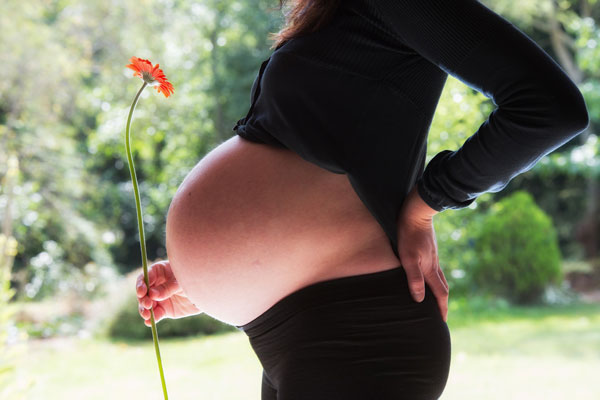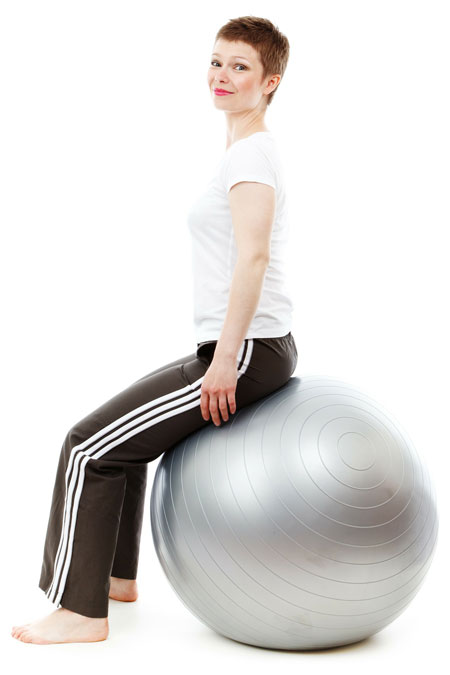It’s not just your face that can give your age away, your vagina is getting older too. While you might pore over the lines and wrinkles on your forehead in the mirror every morning, it’s less likely you are looking ‘down there’ but just like the rest of your body, it’s going through the ageing process too.
Every woman and every vagina are different but undoubtedly our genitals change as we go through life and this is totally normal. Key moments, including pregnancy and menopause, will have an effect on your body but even that can differ from person to person even within the same family.
In your 30s
If you are on the pill or have taken it previously then you might find your vagina gets drier – this is possible because the pill stops ovulation which might lower the amount of natural lubrication produced around the time of the month.
Stephanie S Fabuion, author of Mayo Clinic – The Menopause Solution says: “We think some women may get more vulvar dryness with birth control pills because the pills are blocking male sex hormones called androgens, and the vulva has androgen receptors.” Although she does add that this varies from woman to woman.
Pregnancy is most likely to happen during this decade and that, as well as childbirth, has a massive impact on your vagina as well as your vulva.
The uterus swells to watermelon proportions during pregnancy so some women even get varicose veins on their genitals as a result of the weight of their uterus during pregnancy.

Hormones produced when you are expecting can also change the colour of your vulva and make it darker.
Thankfully it’s a very resilient part of your body and due to its elasticity and blood supply, everything tends to return to normal within six weeks after childbirth.
Although doctors do recommend pelvic floor exercises to help things along as the amount of force that is put on our pelvic muscles during labour can cause damage. Doing regular Kegels when expecting not only will help prevent bladder leakage but also make sex feel more like before.
In your 40s
Years of defuzzing can start to take their toll now, so you might notice skin or pigment changes as a result of waxing or shaving down there. Just like the hair on your head, your pubic hair will also start to thin in your 40s. This is thought to be due to a decline in oestrogen as well as just a natural consequence of ageing.
Apart from pregnancy, your vulva stays largely the same from your teens to your 40s. However, during this decade your hormones begin to drop as this is the decade women start the perimenopausal transition. This is when you may start to notice a lack of elasticity, thinning vagina walls and the start of vaginal dryness, which can lead to itching, burning and redness.

iStock
In your 50s
Most women go through the menopause between 50 and 52 and it has a massive impact on your vagina.
While the rest of your body might be showing unwanted wrinkles and folds, they are actually a benefit for your vulva.
Depleting oestrogen levels cause thinner, less elastic, drier vulva tissue as you lose fat and collagen. This can cause irritation when having sex that some people compare to using sandpaper or feeling like you need to go to the toilet.
As the hormone levels drop, your body stops making some bacteria and that changes the pH of your vagina making it more acidic. Without this good bacteria, you are more prone to infections like urinary tract infections and bacterial vaginosis but also STIs.
In your 60s+ 
While hot flushes will eventually stop after menopause, the changes to your vagina continue in your 60s. By reaching this age, nearly 60 percent of women report problems with vaginal dryness.
Sometimes this leads to a painful cycle when having sex.
Faubion explains: “When sex hurts for women after menopause, there’s this involuntary reaction. You anticipate having painful sex, and then your pelvic floor muscles spasm to protect you. Your brain is saying, ‘This is going to hurt’.”
But what can you do to help your vagina as it ages?
- At any age, if you have concerns about your vagina’s changes, or you feel physically uncomfortable, then you should seek medical attention and visit your GP.
- Doing your Kegels can help keep symptoms at bay. Contract your pelvic floor muscle for ten seconds, relax, and repeat 20 times, three times a day
- Ditch your office chair – Instead, sit on a Swiss ball for 15 minutes a day. This forces the muscles of your pelvic floor to contract, without doing a single
squeeze.
4 Natural Therapists To Help You Thrive Through Menopause Symptoms
- If it is merely dryness during sex then a lubricant can help make things easier. Although remember not to use oil-based lubricants with condoms.
- We slather expensive creams on our face to help the ageing process, but we can do the same with our vaginas. There are numerous vaginal moisturisers on the market that help bind our cells together and hold onto water.
If these aren’t working or don’t appeal, a GP can prescribe vaginal oestrogen which comes in a cream, tablet or ring.

